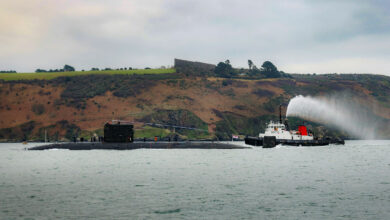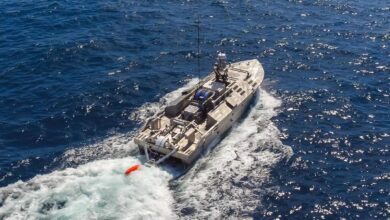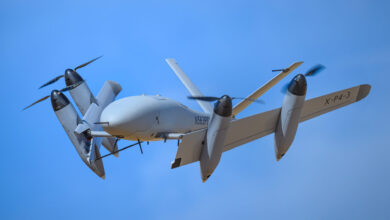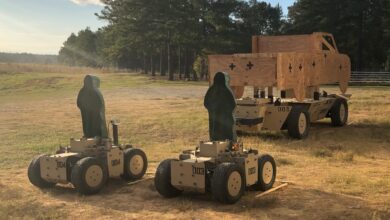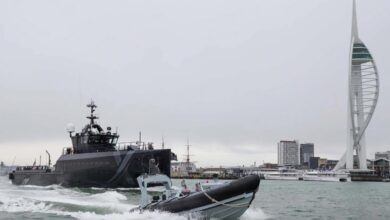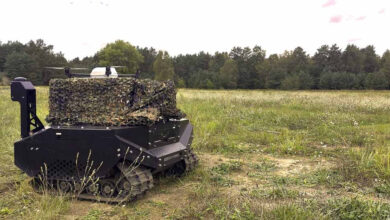UK Orders Three Autonomous Minesweepers for Royal Navy
Part of a $34-million contract, the system comprises an 11-meter long, 10-tonne unmanned surface vessel that tows three coil auxiliary boats.
The UK government has awarded a contract to maritime technology manufacturer Atlas Elektronik UK to build three autonomous minesweepers for the Royal British Navy.
The green light to buy the Royal Navy’s first autonomous minesweeping system came after the system proved its capabilities in extensive practical tests, including a two-week cold-weather sea trial last year.
Combined Influence Minesweeping (SWEEP) is a complementary system which tracks down modern digital mines that remain undetected by traditional mine hunting methods, the UK Ministry of Defense said in a statement last year.
“This next-generation autonomous technology will be instrumental to our goal of protecting the safety and security of our personnel, while also reaffirming the UK’s unwavering commitment to improve the safety of international waters,” remarked UK Minister for Defence Procurement Jeremy Quin about the award.
The safety of our personnel is our top priority. That’s why the SWEEP autonomous minehunter will neutralise mines from a remote and safe distance at sea, keeping @RoyalNavy safe on operations across the globe 🌎
👉https://t.co/jwJzeGa2Zn pic.twitter.com/EHoyE1imOx
— Ministry of Defence 🇬🇧 (@DefenceHQ) January 19, 2021
System Can Detect Signals Traditional Minesweepers Can’t
Developed by Atlas Elektronik UK as part of a 25-million pound ($34 million) contract, the system comprises an 11-meter long, 10-tonne unmanned surface vessel that tows three coil auxiliary boats.
Each of the three boats in the system emits magnetic, electric, and acoustic signals capable of detonating a variety of mines, including the most technologically advanced, which can detect and target passing ships overhead.
The system was developed in close collaboration between the governmental Defence Equipment & Support (DE&S), industry, and the Royal Navy.
“This cutting-edge technology will allow UK personnel to carry out their duties in a safer environment and provide enhanced protection to both military and commercial vessels,” said Barry Miller, the head of DE&S’ Mine Hunting Capability.
Controlled From Afar
The system can be quickly deployed on land, at sea, and in the air, and is controlled by a portable command center from shore or on board a vessel.
The first system is expected to be delivered in late 2022 and will undergo operational evaluation before deployment.
The contract follows a separate order announced last November under which French defense firm Thales will build remotely operated marine mine-hunting systems for the Royal Navy.



